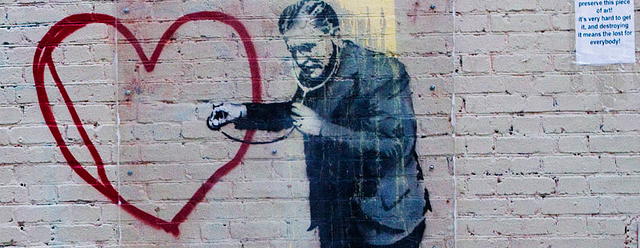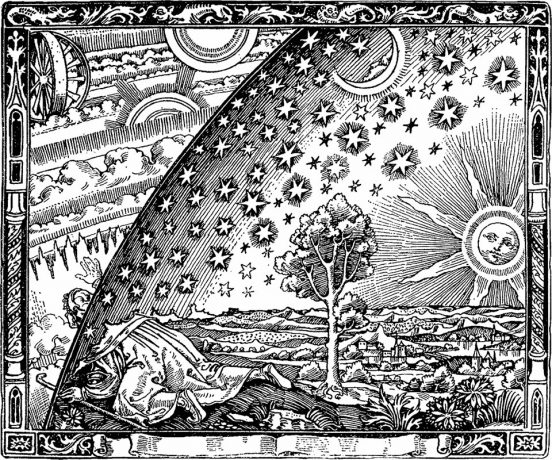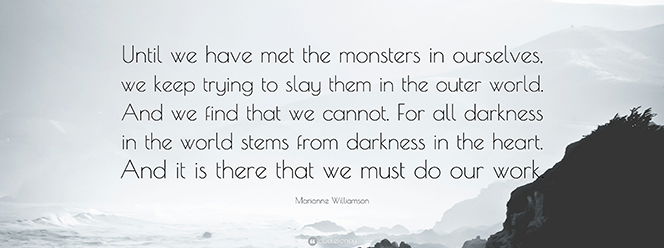When it comes to consciousness, there are really two forms that exist, absolute consciousness and relative consciousness.
What is Absolute Consciousness
Absolute consciousness is your moment to moment awareness of everything in the world. I am aware of the computer screen in front of me and the Mulder and Scully Barbie dolls smiling down at me from their shrine on my shelf. I am aware of the snow falling on my skylight and the wind rustling my window panes. All of these things are arising in my pure or absolute awareness.
What is Relative Consciousness
Relative consciousness is how each of us interpret that absolute experience of consciousness. As you know, the interpretations of an experience can vary widely from person to person. What creates these varying interpretations is the developmental stage you are in and the cultural values you hold.
The easiest way to understand these developmental stages is through the names we give them. Jean Gebser, an early 20th century Renaissance man, identified that human consciousness and culture have developed over time through a fluid and hierarchical sequence of stages. He identified that the “mutations” in the way humanity interprets reality have been occurring throughout history and continue today.
The Stages of Culture and Consciousness
Everyone’s relative consciousness is born at stage one and develops in order from there.
- Archaic (instinctual)
In this stage ones consciousness is still barely distinct from their environment. This stage is seen today primarily only in newborn infants.
Interpretation of an absolute experience of consciousness would be: “I and I alone have this experience.” - Magic (egocentric)
In this stage ones sense of self is inseparably linked to one’s tribe or clan. This stage is seen today primarily in tribal cultures and in nature-based religions and rituals.
Interpretation of an absolute experience of consciousness would be: “I and my tribe alone have this experience.” - Mythic (traditional)
In this stage ones individual identity is expanded to include an entire nation or belief system. This stage is the first time an awareness of soul appears in the self and is characterized by followers of religions that believe in one God.
Interpretation of an absolute experience of consciousness would be: “This experience was given to my group and my people alone.” - Mental-Rational (modern)
In this stage ones sense of self is defined by objects outside himself, the material world. This stage arose from scientific rationality and reason which first rose to popularity during the Western Enlightenment.
Interpretation of an absolute experience of consciousness would be: “This experience and my interpretation of it can be rationalized and explained by material means.” - Pluralistic (postmodern)
In this stage one sense of self is pluralistic in that the person has the ability to see and appreciate multiple perspectives. This stage emphasizes multiculturalism and egalitarianism and was born of the social and environmental movements of the 60’s.
Interpretation of an absolute experience of consciousness would be: “This experience is for everyone and everyone’s interpretation of it is valid and equal.” - Integral (post-postmodern)
In this stage, which is still emerging, human consciousness for the first time is understood to develop through a hierarchical series of distinct stages. This stage emphasizes evolution as the primary value over egalitarianism.
Interpretation of an absolute experience of consciousness would be: “This experience is for everyone but depending on the person’s developmental stage and their values they will interpret the experience in a different way.”
Don’t Be Put Off By Rankings, They’re Not Always Bad
Our natural inclination as Cultural Creatives to view rankings as judgmental and wrong. Our postmodern values insist that we are all equal and urge us to deny ranking systems, hierarchies and value gradations. We feel elitist to determine that some of us are thinking deeper than others. To hold this viewpoint, however, denies the realities of evolution.
What we do not identify with our flatland “ranking is bad” attitude is that there are two types of judgments. There are those based upon exclusiveness (e.g., this race, class, sex, etc. is superior/inferior) and those based upon inclusiveness. Integral culture and consciousness, while raking other stages of awareness as less evolved, identifies that each previous stage is essential and important for the growth all humans.
In reality, the integral stage of culture and consciousness is the first to hold values that are truly all-embracing and it is my belief that these values are key in constructing an enlightened society.







